Music is Like Brain Food for Children
/Time Invested In Practicing Pays Off For Young Musicians, Research Shows
HARVARD based study shows – Children who study a musical instrument for at least three years outperform children with no instrumental training, a new study has found.
While it is no surprise that the young musicians scored significantly higher than those in the control group on two skills closely related to their music training (auditory discrimination and finger dexterity), the more surprising result was that they also scored higher in two skills that appear unrelated to music—verbal ability and visual pattern completion. And furthermore, the longer and more intensely the child had studied his or her instrument, the better he or she scored on these tests.
First Evidence That Musical Training Affects Brain Development In Young Children
ScienceDaily (Sep. 20, 2006) – Researchers have found the first evidence that young children who take music lessons show different brain development and improved memory over the course of a year compared to children who do not receive musical training...
... the children taking music lessons improved more over the year on general memory skills that are correlated with non-musical abilities such as literacy, verbal memory, visiospatial processing, mathematics & IQ than did the children not taking lessons.
Duetting guitarists' brains fire to the same beat
17 March 2009 by Andy Coghlan – Getting in the groove goes deeper than just hitting the notes at the right time, it seems. Musicians playing the same tune together have brain patterns that are virtually identical, researchers find.
The discovery came from electroencephalogram (EEG) recordings of brainwaves from pairs of guitarists as they duetted. The scans showed that individually, each guitarist's brain reacted in a similar way to the tempo-setting metronome beat. But the synchrony between brains kicked in once the "lead" guitarist had signalled when to start and the performance began.
The Mozart Effect
Can listening to Mozart really improve your child's IQ? The Mozart Effect suggests that your child can increase their intelligence by listening to Mozart's music. It claims to have the backing of scientific research and has generated a vast literature. It sounds like a wonderful idea. However, it's not that simple.
"There's no evidence that just listening to music has any effect at all." Dr Alexandra Lamont University of Keele.
Music Education Can Help Children Improve Reading Skills
ScienceDaily (Mar. 16, 2009) – Children exposed to a multi-year programme of music tuition involving training in increasingly complex rhythmic, tonal, and practical skills display superior cognitive performance in reading skills compared with their non-musically trained peers, according to a study published in the journal Psychology of Music...
Music Training Linked To Enhanced Verbal Skills
ScienceDaily (Sep. 27, 2007) – Music training, with its pervasive effects on the nervous system's ability to process sight and sound, may be more important for enhancing verbal communication skills than learning phonics, according to a new Northwestern University study.
Musicians use all of their senses to practice and perform a musical piece. They watch other musicians, read lips, and feel, hear and perform music, thus, engaging multi-sensory skills. As it turns out, the brain's alteration from the multi-sensory process of music training enhances the same communication skills needed for speaking and reading, the study concludes...
Music Thought To Enhance Intelligence, Mental Health And Immune System
ScienceDaily (June 22, 2006) – A recent volume of the Annals of the New York Academy of Sciences takes a closer look at how music evolved and how we respond to it. Contributors to the volume believe that animals such as birds, dolphins and whales make sounds analogous to music out of a desire to imitate each other. This ability to learn and imitate sounds is a trait necessary to acquire language and scientists feel that many of the sounds animals make may be precursors to human music...
Adolescents Involved With Music Do Better In School
A new study in the journal Social Science Quarterly reveals that music participation, defined as music lessons taken in or out of school and parents attending concerts with their children, has a positive effect on reading and mathematic achievement in early childhood and adolescence...
New Research Provides The First Solid Evidence That The Study Of Music Promotes Intellectual Development
ScienceDaily (Aug. 20, 2004) – The idea that studying music improves the intellect is not a new one, but at last there is incontrovertible evidence from a study conducted out of the University of Toronto.
The study, led by Dr. E. Glenn Schellenberg, examined the effect of extra-curricular activities on the intellectual and social development of six-year-old children. A group of 144 children were recruited through an ad in a local newspaper and assigned randomly to one of four activities: keyboard lessons, voice lessons, drama lessons, or no lessons. Two types of music lessons were offered in order to be able to generalize the results, while the groups receiving drama lessons or no lessons were considered control groups in order to test the effect of music lessons over other art lessons requiring similar skill sets and nothing at all. The activities were provided for one year...
A Little Music With Exercise Boosts Brain Power, Study Suggests
ScienceDaily (Mar. 24, 2004) – COLUMBUS, Ohio – It's no secret that exercise improves mood, but new research suggests that working out to music may give exercisers a cognitive boost. Listening to music while exercising helped to increase scores on a verbal fluency test among cardiac rehabilitation patients.
"Evidence suggests that exercise improves the cognitive performance of people with coronary artery disease," Emery said. "And listening to music is thought to enhance brain power. We wanted to put the two results together."
Those results appear in a recent issue of the journal Heart & Lung.


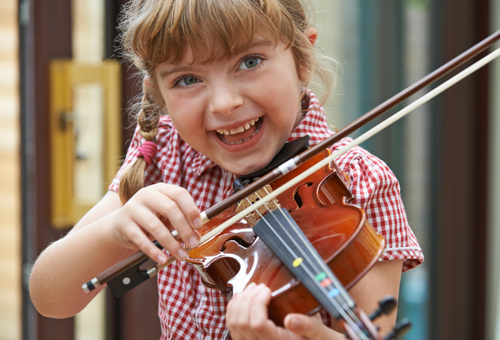
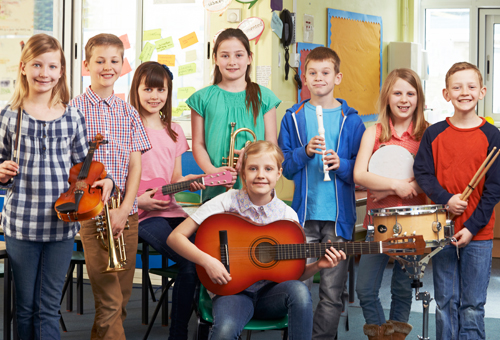

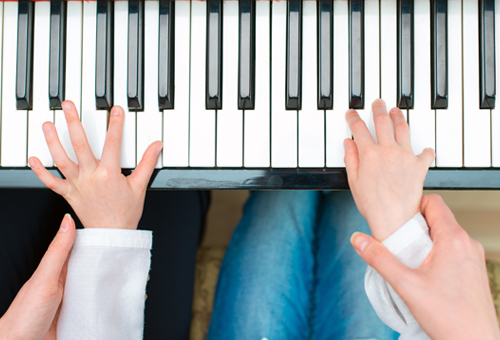
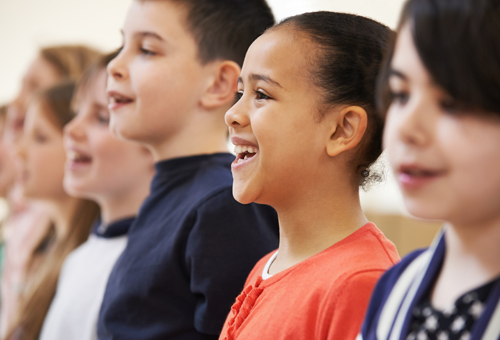


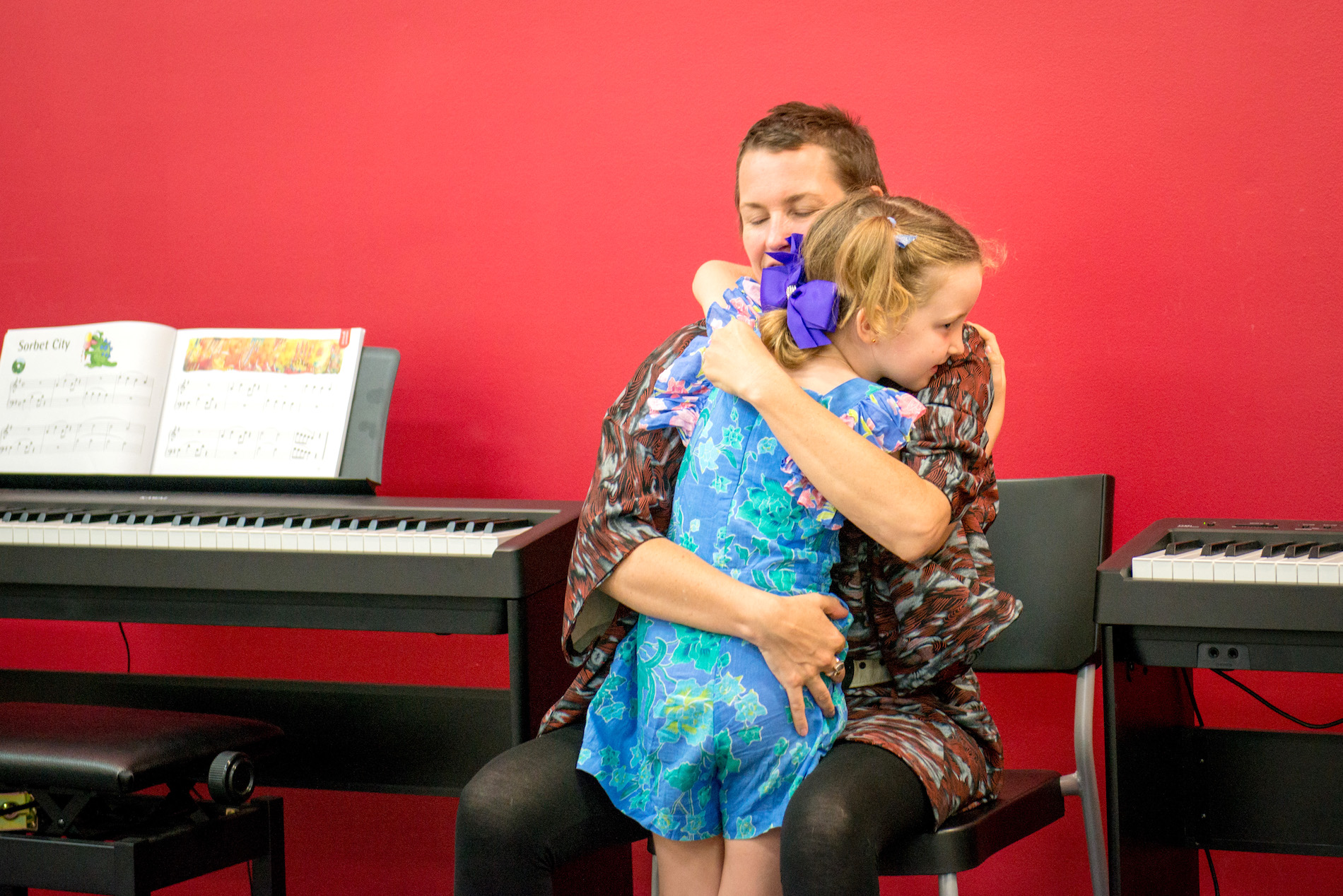






– SANDY